Imagine waking up at 6:30 a.m. and not being able to get out of bed until 10 minutes before you leave for school because you dread leaving the comfort of your room.
Once you get there, you hear people gossiping around you, and you realize that you forgot you had a test today.
It’s finally lunch, but who are you going to sit with, and what are you going to eat? After lunch, more classes follow, and you realize you have five homework assignments to complete by tomorrow.
Then you get home and scroll through your phone, hoping to get a quick escape from your stressful day.
Instead, you see someone you thought you were friends with had unfollowed you. Then you see someone on your TikTok page who is spewing negative words at you, filling your head with negative self-talk and thoughts of others.
This is the reality of what it can look like being a teenager today.
Social media plays a big role in the day-to-day life of average teenagers. Politics, social standards, school, and online media are major factors of anxiety that are constantly blaring at our faces.
Fake friends and talking behind people’s backs are popular trends in teen behavior. There’s heated “beef” between people that could be solved by simple conversations, but it has become common to avoid direct communication and instead talk through others and start widespread rumors.
Teens around the world commonly struggle with mental health issues that can be influenced by many things, but it is commonly impacted by their peers.
I have been on both sides of this, and it has affected me in many ways. Even though I have fallen into talking about people behind their backs, I have worked on it and tried to better myself in that way.
Recently, I have found myself struggling to figure out who I am, and in the process, I have lost some friends. In the end, it turned out well because I grew as a person. When I had these friends, I found myself talking significantly more negatively about myself and others and doing things that were out of my character.
I have come to terms with not having these people in my life, and it has improved my mental health significantly. I do not dislike these people in any way, and in fact, I still talk to a few of them often. They may not be close to me now, but when they were, it helped me to realize what I need in friendships, which is very important for every teen to figure out.
Negative friendships heavily impact teen stress, which is why it is very important to surround yourself with people that love you for who you are and encourage you to grow instead of keeping you down.
It is very hard when people talk falsely about you because they make assumptions or believe a rumor, and it’s especially hard to communicate with people about it because some people don’t even care to fix those crumbling relationships. It’s extremely difficult to face people in the halls who you used to be friends with and who you know have been saying cruel things behind your back. It can make school so much more stressful than it already is.
Not only do I constantly see people stress about drama, but I find many people I know comparing themselves to people they see online, judging their own looks and bodies against them and ruining their self-image. Alternatively, I see people comment things like, “this girl is so ugly — how did she pull him?” or “I am so glad I’m not fat like she is.”
The unfortunate reality is that, while these words are deeply harmful and toxic, they showcase the reality of the society we live in.
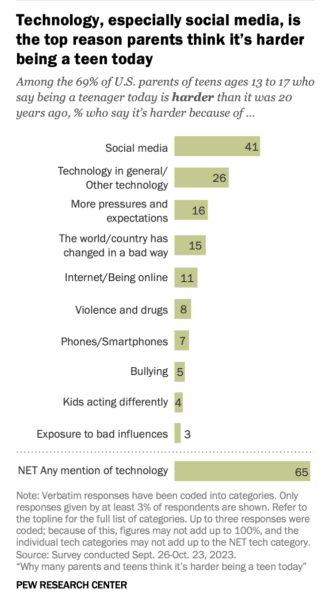
In contrast, scrolling on social media and seeing the comments “I wish I looked like you” or “I looked at the mirror and sighed” can be very discouraging. Comments like this not only introduce people to negativity but they can make the owner of the video feel guilty.
These things subconsciously add stressors into our lives and make us think more negatively.
According to Pew Research Center, a majority of parents say that being a teenager is harder today than it was 20 years ago. The largest portion of these parents point to technology as the cause, with social media being the most prominent.
Teens don’t struggle with stress alone, but also often struggle with other mental health issues like depression. Depression can stem from an endless cycle of comparative nature that is seen in social media.
According to Statista, females around 12-17 years old are more likely to have depressive episodes than males, and as a society, it has seemed that we expect men to push their feelings down and hide.
No matter their gender, race, or sexuality, everyone should be allowed to openly process their emotions and feel acknowledged without the judgement of others pressuring them to hide away. And although these things are more accepted in modern times, it doesn’t mean they always are, and people can struggle to find support.
The pressures of being a teen and the crushing weight of other generations expecting us to fix the world — while at the same time outwardly doubting our ability to do so — can be hard to manage while still feeling hopeful about the future.
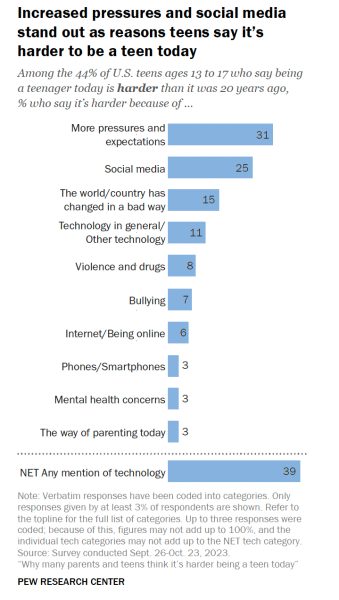
With recent political events, teens are faced with issues that they shouldn’t have to deal with. Issues relating to these events and seeing the divide within our country is extremely upsetting and very hard to talk about.
Growing issues regarding women’s rights, political polarization, and wars with other countries are very worrying topics that nearly everyone online is aware of.
There is a growing question: are we safe in the midst of our own society? Our culture is becoming more radical and polarized on a lot of issues, which often leads to scary all-or-nothing policies.
So who should teens talk to about all of this?
Therapy is very helpful for me, but it is not very affordable. Support groups can be beneficial, but if you’re not as comfortable talking to others about your personal life, apps on your phone and journaling can both be an effective way to vent about or reflect on your daily life.
But what advice can they really give?
If not everyone has an outlet, how are teens expected to carry the weight on their shoulders? They not only experience the pressure of solving problems in their own generation, but also fixing those of generations before them.
Students at La Salle are just a few among many teens who struggle to balance their physical, social, academic, and emotional wellness.
Lessening the rates of depression should be a priority for America. Another thing we can do as individuals is to be kind online and make social media a more positive environment for everyone.
There should be more opportunities for support among all ages, and it should be available for people of all financial backgrounds, giving them an option to speak up and manage their stress in a healthy way.


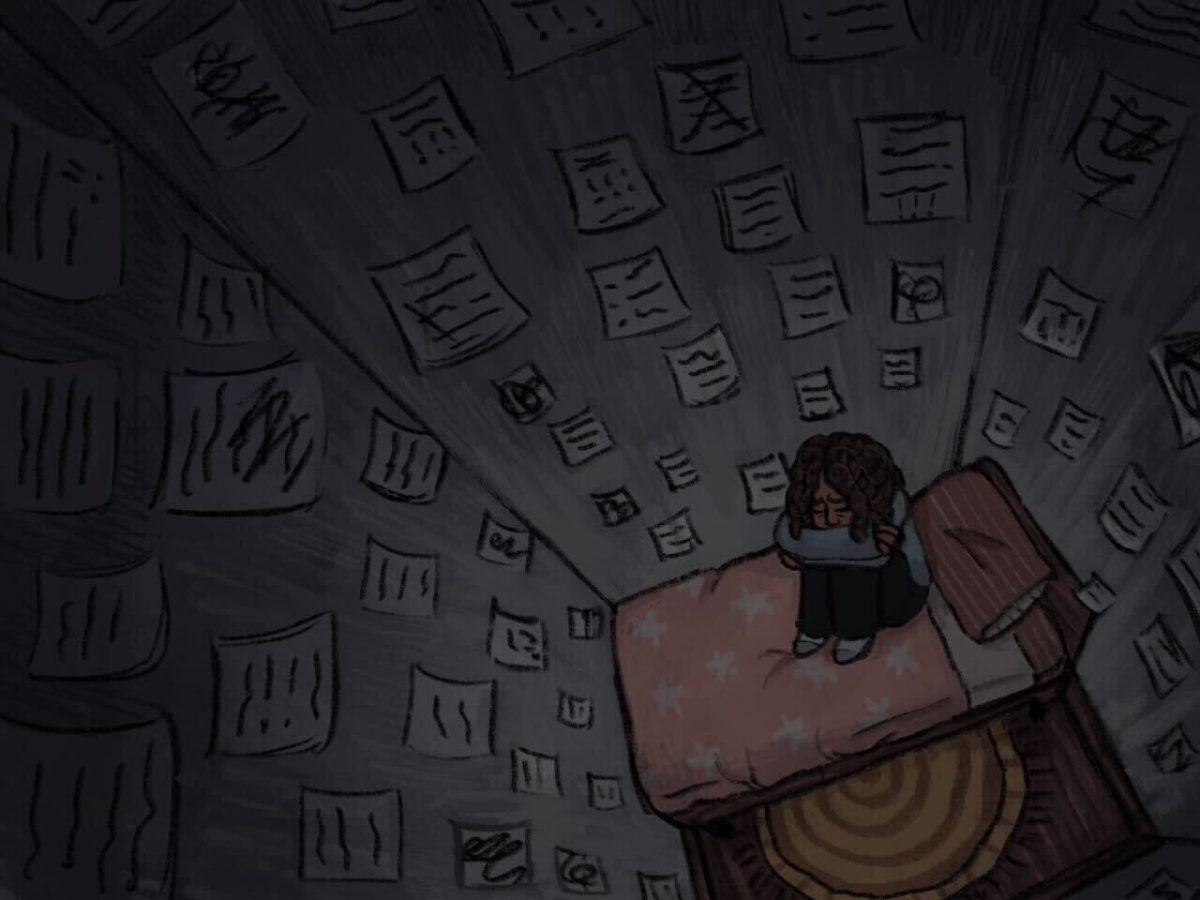

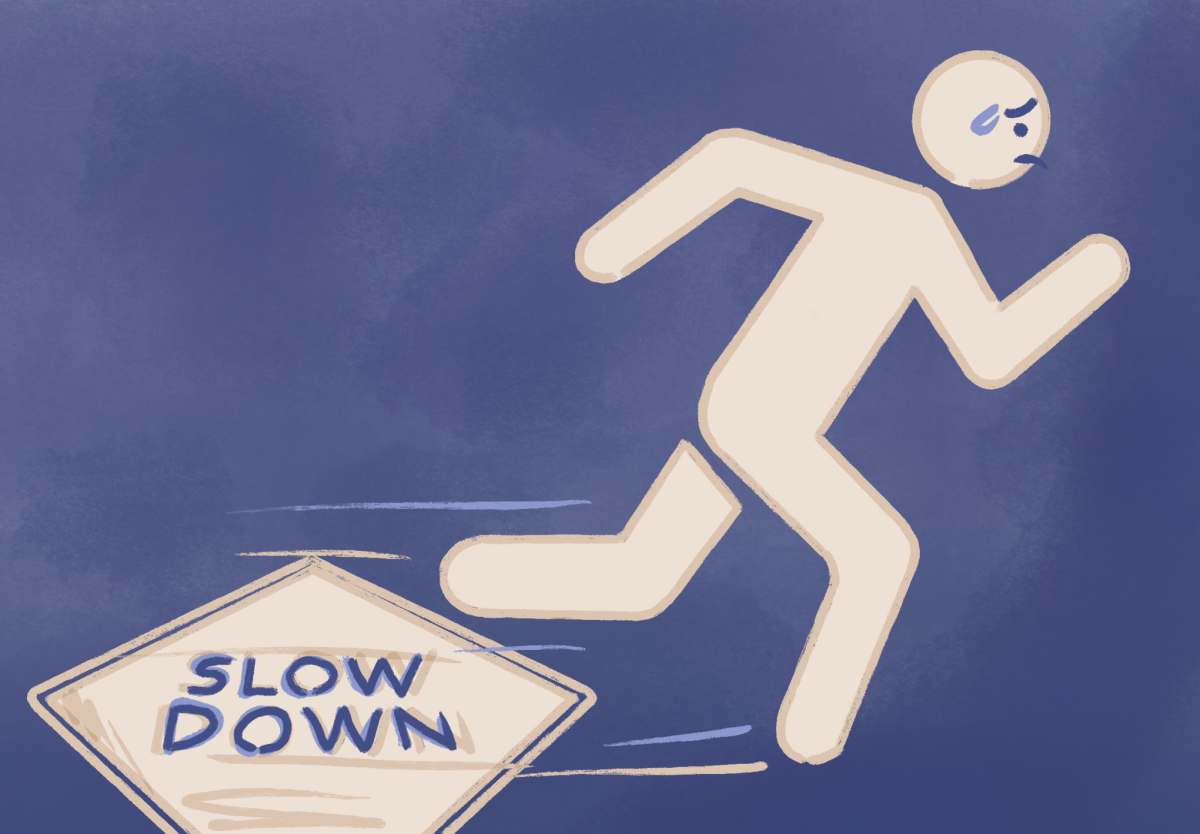

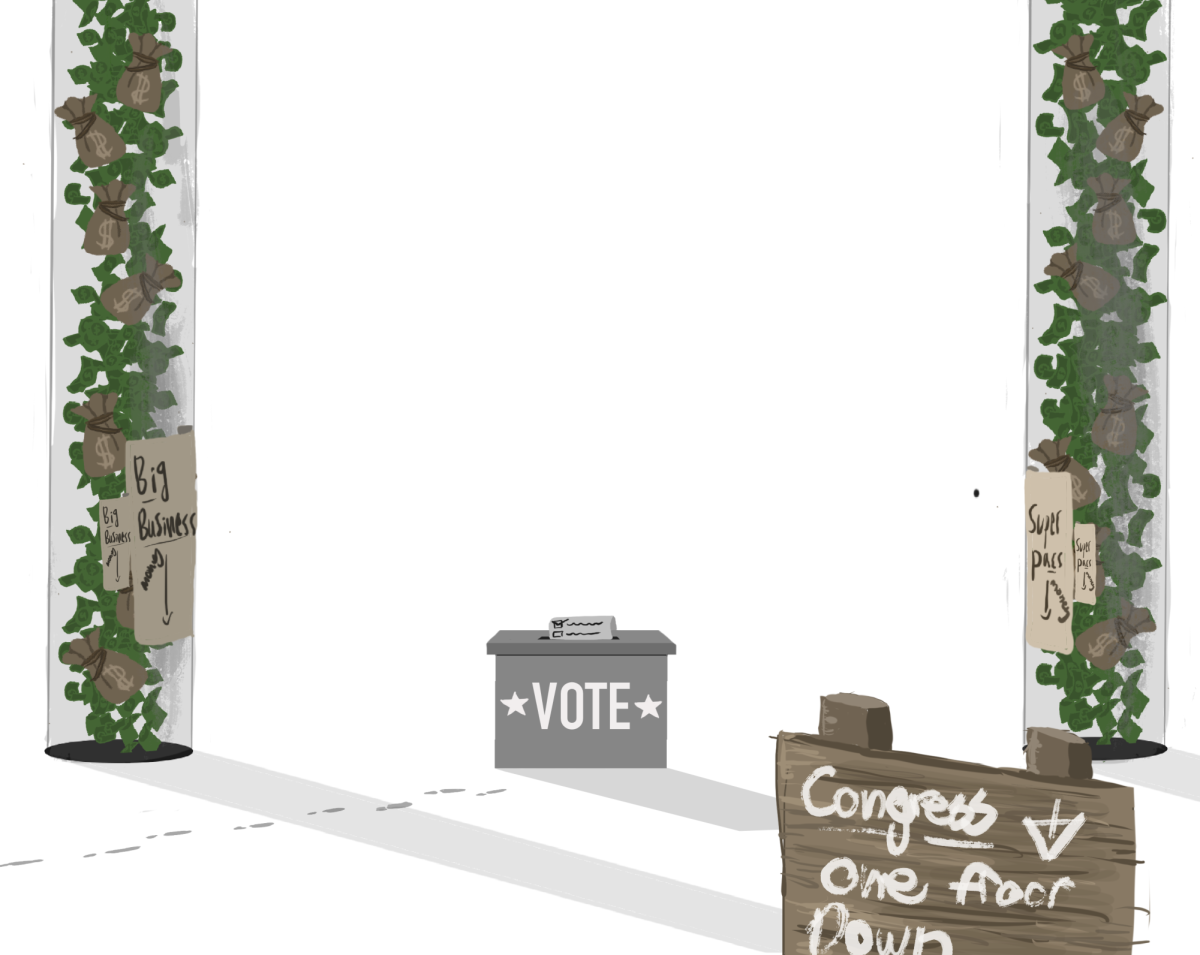
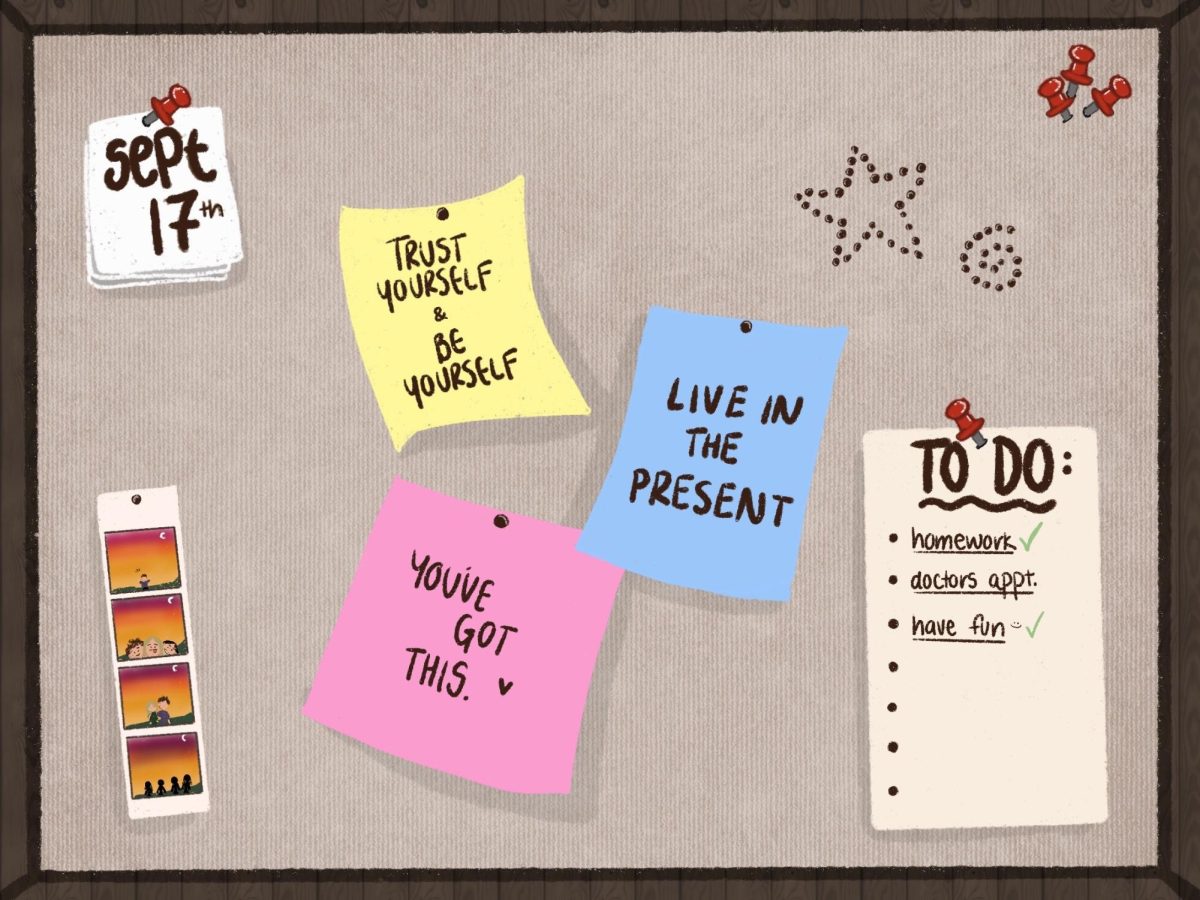


Tami • May 18, 2025 at 8:25 pm
I loved this article – as a grandparent it helped me get a clearer picture of the pressures and how social media plays into that.
Teaching us what we see on social media is often a curated or manipulated version of reality. Many people post only the best aspects of their lives, use filters to enhance photos, or even stage scenarios for social validation. This creates a distorted view of reality and can be especially impactful when we compare our own lives to these idealized online portrayals.
Chris Babinec • May 8, 2025 at 8:46 am
A tremendously thoughtful piece. It begs the question of where responsibilities lie in terms of moving toward a more tolerant and peaceful world. What can individuals do (direct communication, resist the temptation of social media usage)? What are the responsibilities of parents, schools, communities and the government. As usual, a multi-level coordinated effort is dependent on all parties agreeing on shared goals and that is incredibly difficulty in a heterogenous world. Nevertheless, this article asks questions that need to be answered for a a better world.